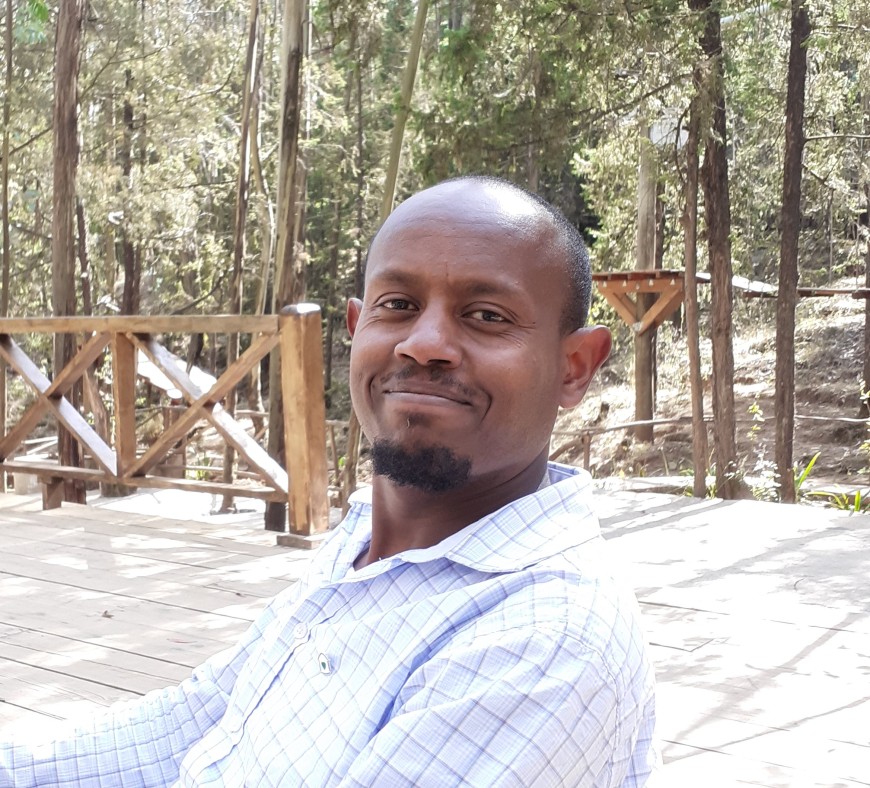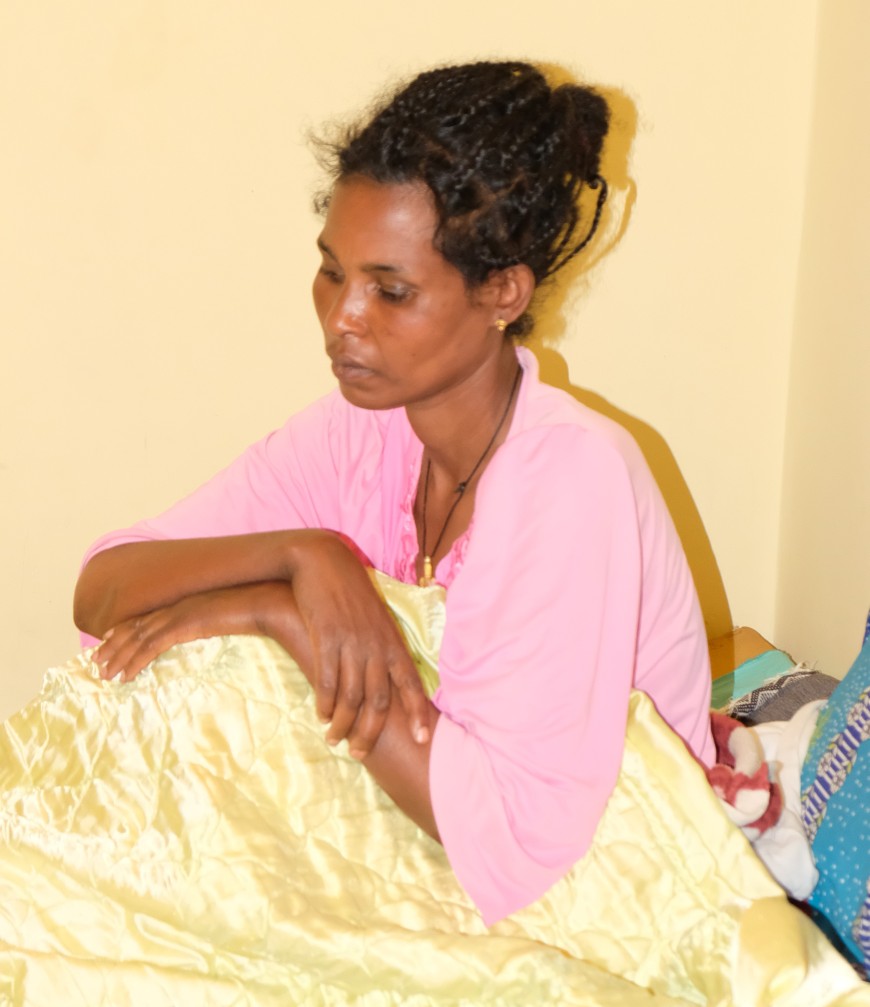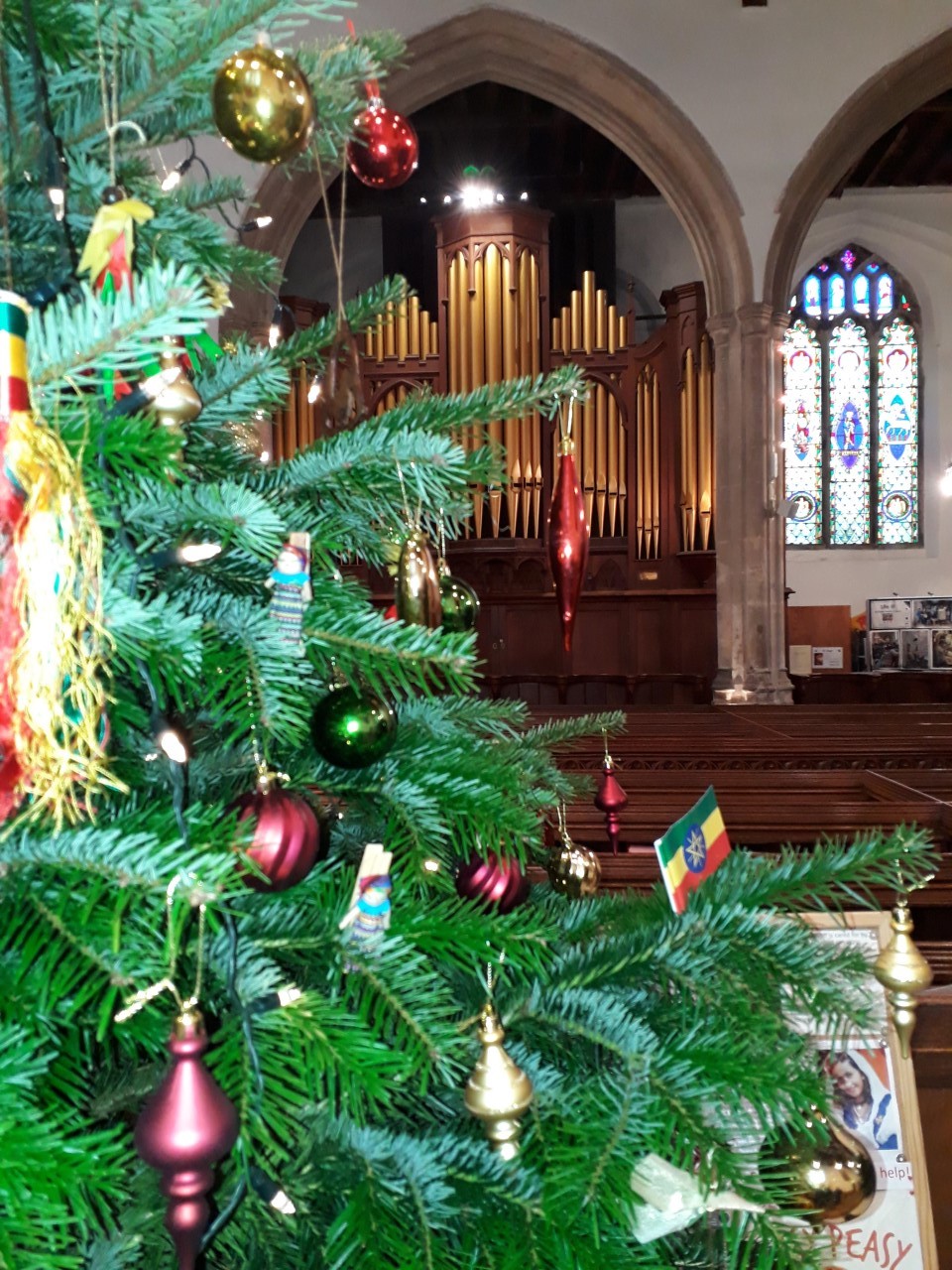When the trustees visited Hospice Ethiopia last month, we took the opportunity to ask Hospice Ethiopia’s Director, Ephrem Abathun what a typical working day looked like for him. We thought you might be interested to hear what he said.
His day usually starts about 6am but may be earlier if he has international guests visiting. He aims to leave home around 6.30am after eating some kinche (cracked wheat) or eggs with bread and has an hour’s drive (25km) to the HE premises. Ethiopian coffee (and occasionally tea) is drunk with breakfast, in the morning, after lunch and mid-afternoon. Gullilat Korbu (Finance Officer), Wengi Yared (Programme Manager), and the nurses arrive shortly after him, between 7.30-8am.
Ephrem’s working day begins with reviewing operational activities so that he knows what he has to prioritise and on certain days of the week there are regular weekly meetings for example on Monday mornings he has meetings with the staff and the management team (Wengi Yared and Gullilat Korbu). Lunch is around midday and is always a working lunch. He either brings lunch from home – “spaghetti pasta” or he meets international guests for a working lunch. On Monday afternoons he holds a clinical meeting with the nurses when difficult and distressing cases are discussed. He tries hard to make sure this meeting is not cancelled as it is a good opportunity to share his experience and build good working relationships with his clinical staff.
There a number of things that have to be fitted in around meetings and appointments for example, working on project applications with Wengi, speaking to local partners on the phone for example the Addis Adaba Health Bureau, attending face to face and virtual meetings with donors and partners, and writing reports.
During the last 2 years he has rarely had time to visit patients himself who are registered on the Home Based Care programme but now that doctorate is finished he hopes to have more time to support the nurses carrying out these visits. Certainly Hospice Ethiopia’s patients benefit hugely from his wealth of experience.
Ephrem usually leaves the office around 6-7pm and then has an hour’s drive home, receiving phone calls from staff, partners and others on his way. He tries to eat supper with his wife and 2 girls (aged 9 and 12) when he arrives home, which might be pasta, injera, barley bread and vegetables. Meat (beef) is eaten once or twice a week. (Beef is the cheapest meat in Ethiopia and is cheaper than goat, chicken, lamb and is produced across Ethiopia.) Once his daughters are in bed there is often more work to catch up with.
Ephrem works 5 days a week in theory but at weekends he works at least a further ½ day’s work. He tries hard not to work at all on Sundays so that he can spend time with his family.
This typical day looks pretty straight forward but from our experience working in Ethiopia is challenging. Long traffic jams, intermittent internet, massive paperwork demands by regulatory authorities, lack of internet banking and certainly no internet shopping all demand the patience of a saint. Fortunately Hospice Ethiopia’s Executive Director is one of these!







